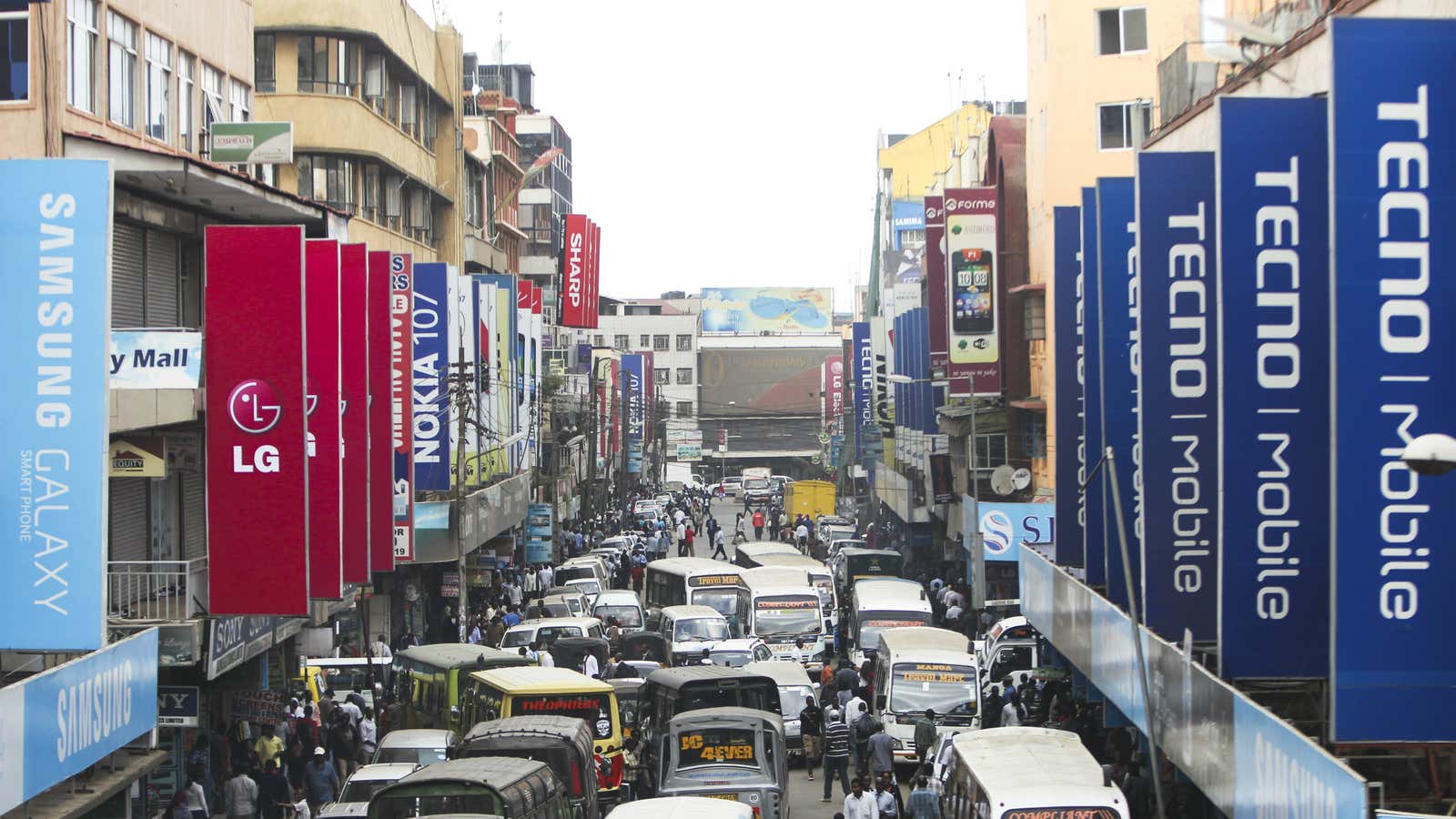Sub-Saharan Africa’s major economies are struggling.
Nigeria’s economy, the continent’s largest, expanded just 2.3% in the second quarter, compared to 3.9% a year earlier, according to the country’s National Bureau of Statistics.
Meanwhile, Africa’s second largest economy, South Africa, contracted, declining 1.3% compared to the previous quarter, raising fears that a recession may be on its way. Over in Kenya, East Africa’s No.1 economy, the Nairobi Stock Exchange (NSE) has lost about $1.5 billion in value since the beginning of the year.
African currencies have been decimated, in part a result of investors moving their funds out of emerging markets. Fears of a slowdown in the Chinese economy, plummeting commodity and oil prices, and falling demand from the US and other countries for petroleum products have all started to take their toll on the region. No wonder the World Bank revised its growth forecast for the continent down to 4.2% this year, a stark contrast to the annual average of 6.4% between 2002 and 2008.
So has Africa’s rise finally hit its ceiling? “History suggests that any slowing in global growth is followed with some lag in Africa—reflecting its traditional commodity dependence,” Razia Khan, chief economist, Africa, at Standard Chartered Bank tells Quartz.
Nigeria, one of the world’s largest oil producers, has been hit hard by the fall in oil prices. At the same time, uncertainty surrounding elections earlier this year did not help. “Increased frequency of fuel shortages ahead of the political transition,” Khan says, have contributed to the slowdown. GDP in the non-oil economy decelerated to 3.5% year-on-year in quarter two versus 5.6% in the first quarter, according to Khan.
For some analysts, these struggles are evidence resource-rich African countries have not diversified enough. “Every major economy in Africa that did well out of the extractive industries over the past decade has failed to industrialize,” Ricardo Soares de Oliveira, an expert on African politics at Oxford University, told Reuters.
In South Africa, the region’s most industrialized economy, commodities still account for as much as 57% of exports. Elsewhere on the continent, there are continued problems of poor transport links, unreliable electricity, corruption and inefficient government bureaucracy. Local manufacturing industries are still week, with most African nations importing more than they export.
“A good chunk of the Africa Rising phenomenon was driven by strong commodity prices due to China and other Asian demand,” Aidan Eyakuze, an economist and executive director of Twaweza, a civil society organization in east Africa, tells Quartz. But this clearly was not going to last forever, according to Eyakuze. “The result is that forward-looking analysts are correcting growth forecasts to take this into account.”
It may not be time to panic yet. ”Remember we are still growing positively, but at a slower rate,” Eyakuze says. “If Africa was a stock market index, what we are seeing is a price correction not a rout.”
